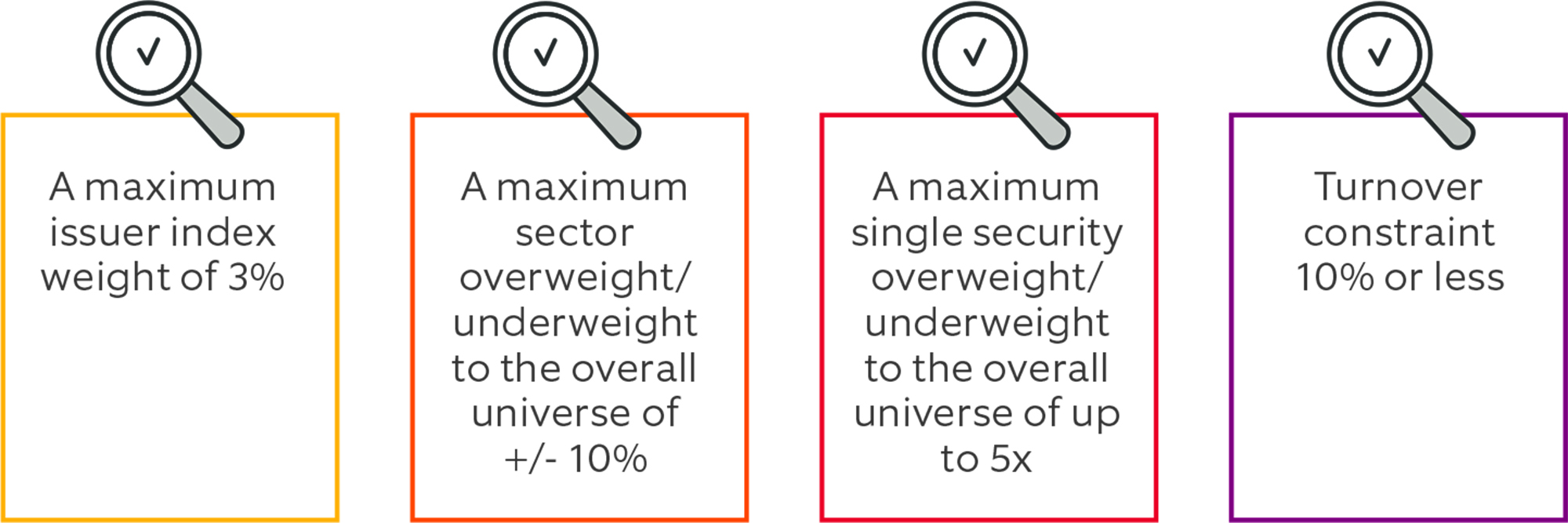For investors seeking exposure to investment grade U.S. corporate bonds with longer-term maturities and a focus on issuer quality and value.
Investors traditionally have used fixed-income investments to diversify portfolios and provide a source of potential portfolio income. We believe that achieving those goals has become more challenging in recent years due to evolving conditions in the fixed-income markets, including persistently low yields and shortcomings in legacy credit rating methodologies. We also believe that innovative new fixed-income investment solutions may help address these challenges.
In this paper, we discuss some of the changes that are affecting traditional fixed-income indexes. We then describe how the FlexShares Credit-Scored US Long Corporate Bond Index Fund (LKOR) uses a multi-factor approach to select and weight securities, which we believe offers the potential for improved diversification and income generation.
THE NEED FOR INNOVATION IN A CHANGING BOND MARKET
 For generations, advisors have advised investors to look to bonds and bond funds for opportunities to potentially help diversify their portfolios and generate income. Yet changes within the fixed-income landscape in recent years may have made it more challenging for investors to meet those goals.
For generations, advisors have advised investors to look to bonds and bond funds for opportunities to potentially help diversify their portfolios and generate income. Yet changes within the fixed-income landscape in recent years may have made it more challenging for investors to meet those goals.
A host of factors are contributing to an environment of low bond yields, including increased equity volatility that we believe may be driving investors into bonds, expansionary monetary policy by global central banks and a continued subdued outlook for inflation. Our view is that these conditions have dampened the income-generating potential of the investment grade corporate bond market.
 What’s more, fixed-income investors today are looking with greater scrutiny at the credit scoring methodology used by Nationally Recognized Statistical Rating Organizations (NRSROs). The financial crisis of 2008 exposed shortcomings with this traditional form of credit scoring, leading some investors to seek new alternatives that help to gauge a bond issuer’s credit risk.
What’s more, fixed-income investors today are looking with greater scrutiny at the credit scoring methodology used by Nationally Recognized Statistical Rating Organizations (NRSROs). The financial crisis of 2008 exposed shortcomings with this traditional form of credit scoring, leading some investors to seek new alternatives that help to gauge a bond issuer’s credit risk.
In our view, these conditions call for a more innovative approach to building fixed-income portfolios—particularly in the areas of identifying issuer quality and targeting the potential for enhanced risk-adjusted returns. We believe that fixed-income factors such as value and quality—which our research suggests may provide the potential for long-term return premiums—may help improve corporate bond portfolio construction.
A MULTI-FACTOR APPROACH TO INDEX CONSTRUCTION
The FlexShares Credit-Scored US Long Corporate Bond Index Fund (LKOR) seeks to provide investors the potential benefits of longer duration1 corporate bonds by tracking the Northern Trust US Long Corporate Bond Quality Value Index2, a custom index with what we believe is a unique multi-factor methodology. Northern Trust Investments Inc. (NTI) is the investment adviser for FlexShares ETFs.
The construction of the index begins with a securities screen to determine eligible securities. Once all eligible securities have been identified, the index attempts to optimize the exposure to quantitative factors by assigning both a Value Score and Quality Score in order to arrive at a Composite Alpha3.
The Value Score is based on quantitative ranking of various metrics including:

The Quality Score examines three critical elements NTI believes offers a forward-looking assessment of creditworthiness and an issuer’s ability to pay debt obligations:

The primary objective of the optimization is to maximize the indices exposure to the Composite Alpha, and maintain a similar effective duration4 profile relative to our eligible universe. Further optimization controls include:

CREATIVE, EFFICIENT EXPOSURE TO THE LONGER-DURATION CORPORATE CREDIT MARKET
 We believe that the index’s composite value and quality score ranking creates the potential for greater diversification and income generation, and may enhance risk-adjusted returns. We believe the quality scoring methodology using contemporary measures of overall credit risk, may provide an improvement over legacy credit rating methodologies.
We believe that the index’s composite value and quality score ranking creates the potential for greater diversification and income generation, and may enhance risk-adjusted returns. We believe the quality scoring methodology using contemporary measures of overall credit risk, may provide an improvement over legacy credit rating methodologies.
This unique approach represents the kind of innovation that, in our view, is needed to help investors pursue the traditional benefits of corporate bond investing in an evolving fixed-income landscape.
CONCLUSION
Corporate bonds remain an important component of many investors’ fixed-income holdings, offering the potential for diversification and income generation. Low bond yields and the potential shortcomings of traditional credit scoring methodologies have made pursuing these potential benefits more difficult. The FlexShares Credit-Scored US Long Corporate Bond Index Fund (LKOR) is designed to address the needs of these investors and the conditions of today’s fixed-income markets by employing multi-factor selection criteria and diversification controls that we believe may enhance the portfolio’s risk-adjusted returns.
FOOTNOTES
1 Duration is how sensitive your investment or a portfolio is to a change in interest rates. You will often see it expressed as a number of years – the higher the number the more volatile will be the expected change. Historically, rising interest rates have often meant falling bond prices, while declining interest rates have meant rising bond prices.
2 Northern Trust US Long Corporate Bond Quality Value Index is the current underlying index for the fund as of April 30, 2020 and is designed to measure the performance of a diversified universe of longer-term maturity, US-dollar denominated bonds of companies with investment grade credit quality, favorable valuations, and enhanced short-term and long-term solvency. Longer term is defined as 10 years or longer to maturity date at the time of reconstitution.
3 Composite Alpha is produced by combining each issue’s Value Score and Quality Score along with their respective weights determined by Northern Trust Investments’ Quantitative Research team.
4 Effective Duration is a duration calculation for bonds that have embedded options. This measure of duration takes into account the fact that expected cash flows will fluctuate as interest rates change and is, therefore, a measure of risk. An embedded option is a component of a financial security that gives the issuer or the holder the right to take a specified action in the future and make investors vulnerable to reinvestment risk and expose them to the possibility of limited price appreciation.


